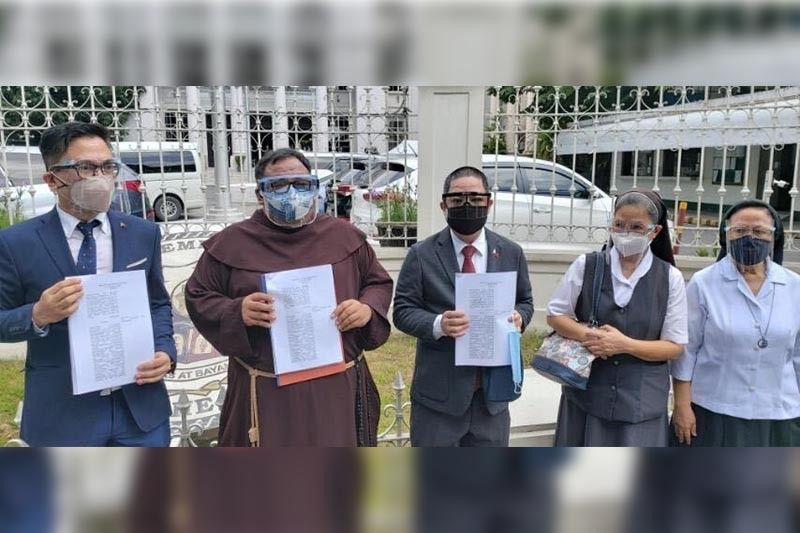30th petition vs anti-terror law raises curtailing of freedom for religious expression

MANILA, Philippines — A group of Catholic leaders asked the Supreme Court to declare the Anti-Terrorism Act of 2020, as null for curtailing the freedom for religious expression.
In the 30th legal challenge the contentious and divisive law is facing at the SC, the Association of Major Religious Superiors in the Philippines (AMRSP) urged the nullification of several provisions of Republic Act of 11479 for being unconstitutional.
“The appreciation of how the Anti-Terrorism Act of 2020 affects the mission of the Church and the free exercise of its beliefs as defended by the Constitution, and truly supports the view that it is indeed unconstitutional and must be struck down,” the pleading filed through petitioner, lawyer Rafael Vicente Calinisan.
The AMRSP questioned the timing of the enactment of the law when the COVID-19 pandemic is ravaging the country. It added that the government seems to be deaf to the public clamor for mass testing and relief for the most vulnerable, but instead, legislators focused on the law’s passage.
The group insisted that “terrorism is not our immediate concern,” but it should be the people’s health and safety.
They also added: “It is only through efforts for peaceful resolution of hostilities while addressing the root causes of such violent acts comprehensively, and not just militarily, will genuinely answer the roots of violence that is rampaging across our land.”
RELATED: Religious groups join legal fight vs anti-terrorism law at SC
Crackdown on dissent
The petitioners noted that the administration of President Rodrigo Duterte has a track record of cracking down on perceived dissent, and the anti-terrorism law “can, and will be used to stifle dissent and curtail rights to free speech, to organize and form associations and to peaceable assembly in redress of grievances.”
They noted the red-tagging of church group Rural Missionaries of the Philippines, which is AMRSP’s oldest mission partner, which works with marginalized sectors.
RMP, along with rights group Karapatan and women’s group Gabriela previously sought the issuance of a writ of protection from the courts but failed. They were later sued by National Security Adviser Hermogenes Esperon for perjury for supposedly falsely claiming it is registered with the Securities and Exchange Commission.
READ: Groups file red-tagging complaints to Joint Monitoring Committee | RMP says it’s in process of clarifying status with SEC
RMP national coordinator Elenita Belard said in 2019: “This perjury case against us and our co-petitioners aims to turn people’s attention away from the real issue. This is about the violations of state forces against our members and we want protection from whatever harm they may inflict on us.”
The AMRSP stressed that the part of the Church’s mission is to reach out to the poor, and they do not distinguish who it helps out among them.
“[F]or as long as they are part of the marginalized sectors of society, helping the poor may be construed to mean giving assistance to ‘terrorists,’” the petitioners said.
RELATED: UN rights chief raises anti-terror bill's 'chilling effect' on humanitarian work
The group also said that the anti-terrorism law affects the Church’s fundamental right to free religious expression.
They explained that it is their duty to act as witnesses, and commit to the obligations that flow from the Gospel. “To be a witness is to take an active role in the transmission of the faith in words and deeds. Being a witness is an act of justice that establishes the truth or makes it known.”
“Given this obvious burden that befalls the Christian faithful, it is but necessary for them to seek redress from this Honorable Court so as for them to continue with their duty and right to perform the social doctrine of the Church,” they added.
The is the 30th legal challenges against the anti-terrorism law. Martial law-era Solicitor General Estelito Mendoza, meanwhile, sought to be allowed to stand as “friend of court” and urge the SC to junk the petitions, while Solicitor General Jose Calida urged the tribunal to cancel the oral arguments set, at the earliest, on the third week of September.
- Latest
- Trending


































